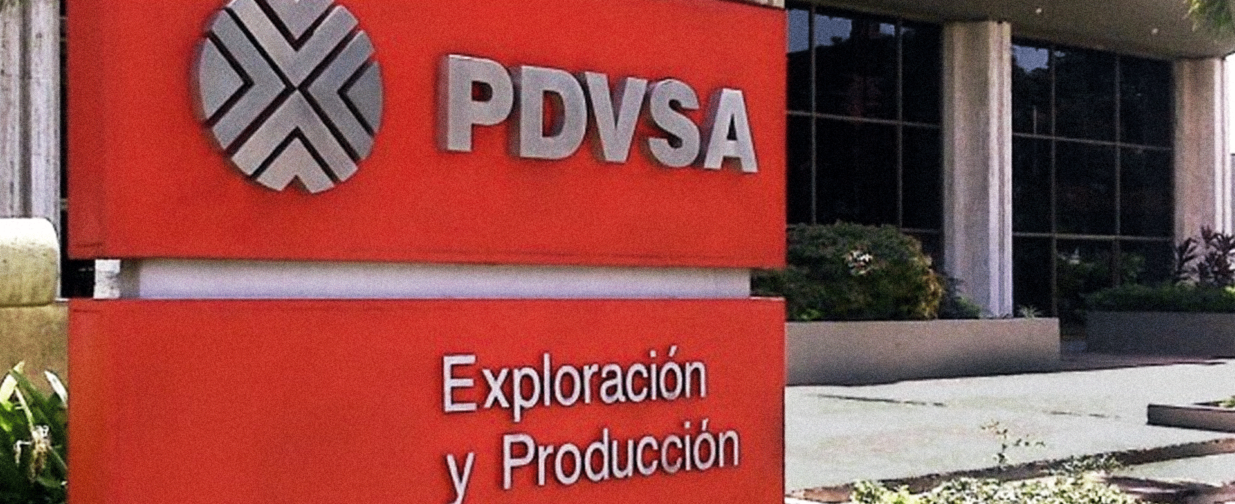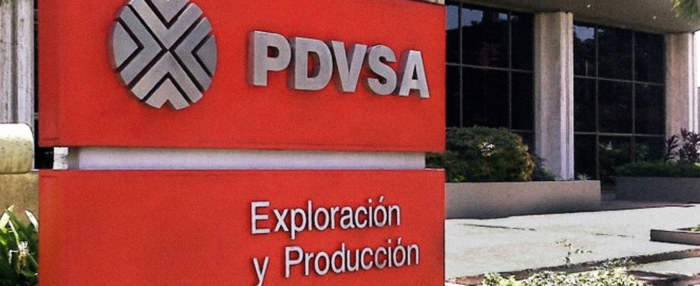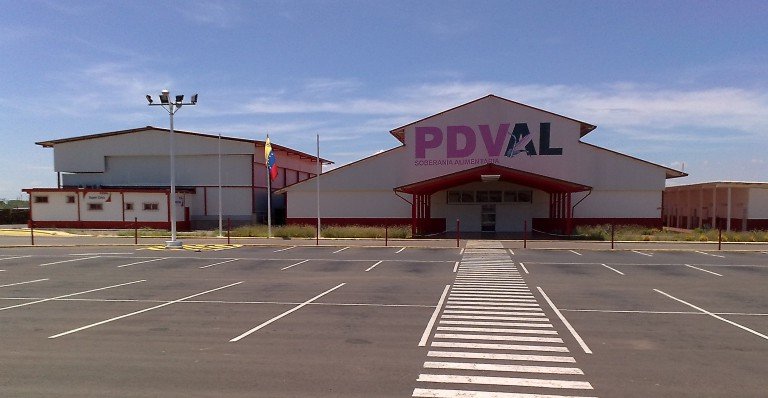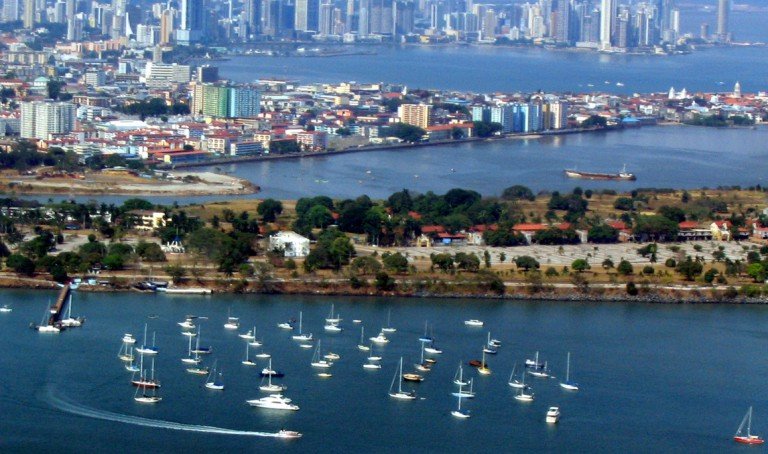

Until 2010, he was the auditor general of PDVSA. A year before retirement, he wanted to have a power of attorney to manage a company registered in Panama, through an operation that involved Switzerland and Luxembourg, all under a scheme designed by Mossack Fonseca, a Panamanian law firm specialized in creating international structures to cover the wealth of those who can pay for their services.
|
Getting your Trinity Audio player ready...
|
They practically cried their eyes out suggesting not taking him as a client. "Did you read thoroughly the links below? He is on the board of directors of Pedevesa (PDVSA) with the brother of President Hugo Chávez, Asdrúbal (...) The possibility of a scandal is too high (...) Also, I do not agree at all with what they are doing to the Venezuelan people with this company," said in May 2009 an alarmed Ramón Fonseca, founding partner of Mossack Fonseca, a company created in Panama in 1975 to advise investors in the formation of arrangements of international companies to evade taxes in their countries of origin or launder money.
In reality, Asdrúbal Chávez is a cousin of the deceased Venezuelan head of state, but that is one small detail. The important thing is that one year and two months later, in July 2010, Jesús Manuel Villanueva Rojas, then Auditor General of Petróleos de Venezuela (PDVSA), did obtain the power of attorney to manage a Panamanian firm that would be used in the mobilization of funds deposited in a Swiss bank account. That goal was achieved thanks to a figurehead.
In July 2010, after the power of attorney granted to him for the management of company Blue Sea Enterprises was revoked, Villanueva Rojas, a member of Rafael Ramírez’s management in the Venezuelan state oil company, did not desist. Through his Advisor in Luxembourg, he got his daughter Anny Josefina Villanueva Silva to be authorized to manage the overseas company.
This story emerges from a series of internal emails from the international company known as the International Consortium of Investigative Journalists (ICIJ). The rest of the story herein presented was prepared from the analysis of these writings and interviews to witnesses who confirmed the information found.
In July 2010, at the same time that the daughter was approved as a figurehead, in Pdvsa, the retirement of Villanueva Rojas was being prepared, who distinguished himself from the rest of his co-workers by his good taste in clothing and polite manners, especially with female co-workers. This man, who joined the oil industry in 1982, was blamed for leaking an internal audit report submitted on April 7, 2009 to the president of the state oil company, Rafael Ramírez, which demonstrated the irregularities committed in the purchase of food for President Hugo Chávez's social program, called Pdval, according to what journalist Mery Mogollón wrote in August 2010 in Contexto magazine. "That report was a card up his sleeve to put pressure on those who he believed had turned their backs on him by demoting him from the board of directors of the industry," says a former co-worker of Villanueva. Another former employee of the industry remembers that before Villanuevas’ retirement, the finger was pointed at him for dubious handling in payments of invoices to suppliers and in the administration of Pdvsa trust funds.

However, the Pdval case report would be his end. According to this document, PDVSA used until mid-2008 over 2 billion dollars to buy one million tons of food. The report prepared by Villanueva Rojas’ team revealed that only 25% of what was purchased arrived in the country, and only 15% of that total was distributed. In addition, it reported at least 180 million dollars in surcharges for not considering the best offers, acquiring damaged products and sometimes a surcharge of nearly 100%. On the other hand, six out of the 10 contracted suppliers were intermediaries. All this happened in the context of a food shortage emergency.
The disclosure of that document issued in 2009 by the team of Villanueva—who did not hesitate to introduce himself as the executive who had the control of all Pdvsa's credit and debit accounts—was known in mid-2010, when the finding of nearly 100 thousand tons of decomposed food that the state oil company had bought from companies in China, USA, Brazil and Argentina, was a scandal that led to the arrest of three company officials in charge of trading these goods.
Upon reviewing the emails of Mossack Fonseca about the former PDVSA auditor, the efforts of the law firm to facilitate the operations with the figureheads of Politically Exposed Persons (PEP) are evident. Those actions, which border on illegality, violate international controls against the laundering of money from activities like drug trafficking and corruption.
The first step in this story takes place in Luxembourg, the Grand Duchy surrounded by Belgium, Germany and France. On March 20, 2009, a Mossack Fonseca representative requested to include a list of 15 companies in the Panama registry. He even says that if one is not available, that is, if the name is already in use by another company, "simply add an additional word" to create a new name.
Among the 15 companies is Blue Sea Enterprises, registered in Panama on March 23, with a capital of 10 thousand US dollars. Its directors would then be Mossack Fonseca employees, who lend their name to the proceeding before the commercial registry.
But this shell company, which had no physical place of business, employees or merchandise in production or exhibition, is sold almost two months after, on May 5 of the same year. Although the leaked documents do not indicate who the buyer is and for what purpose he acquires it, on the same day, the directors of Mossack Fonseca are informed of the due diligence procedures carried out to determine whether Jesús Manuel Villanueva Rojas was a politically exposed person.

At the Luxembourg branch of Mossack Fonseca, they had already issued a power of attorney to manage the company, and waited for the result of the search. As the Venezuelan lawyer Alejandro Rebolledo explains, it is a formality with which banks and financial advisory companies comply to avoid money laundering crimes. On May 6, 2009, one day after the sale, an employee of the law firm explained in an email how they would proceed after agreeing the sale of the company, "The instructions to update the company's profile are sent with the power of attorney issued by the Luxembourg office. With this information, the officers investigate the agent and update the system if the person has no history that could affect us." Not in all cases an alert is receive, but it was received in the case of Villanueva Rojas.
The leaked emails demonstrate the internal debate generated in Mossack Fonseca due to the position of Villanueva Rojas in PDVSA. Although the first search rules out that by May 2009 he would be still a director of the oil company, in a later analysis, in July of the same year, he is classified as a director, and they explain that Blue Sea Enterprises will be used as an investment vehicle. They also detail, according to the information received from Luxembourg, that the client's funds come from another Swiss bank and would be the proceeds from "savings accumulated by the client during his long professional activity".
However, a senior executive of the firm said on July 10, "In my opinion, it is very likely that a scandal arises at some point, particularly because they believe they are untouchable and are doing things their way." She said regarding the behavior of the officials in Venezuela.
So it was not Ramón Fonseca only, but Jurgen Mossack as well, the other founding partner of the law firm, who in two emails of one line each consecutively said, supporting his partner, "Right, we cannot have him as a client". And then added, "In addition, they and the bank (the financial entity that participated in the operation is never identified) are helping the communist cause."
After those last words the sentence was issued. On July 22, they reported that "The partners have decided not to grant Mr. Villanueva the power of attorney, given that he is a key person in Pdvsa as the current Director/Comptroller/Auditor of that entity (...) There is a high risk in doing business with this person, because he has direct access to the public treasury and the origin of his funds may be questioned at any given time, so the odds of a scandal are higher. The partners have also suggested contacting the bank (its client) directly and avoid that they too are affected by this situation."
From Luxembourg, Villanueva's advisor dismissed the arguments sent by the office. "My client for this company is a bank in Switzerland. They know about Mr. Villanueva and his background. However, they accepted him as a client, since they have used several reliable sources (not only World Check) to verify the origin of the funds deposited in the bank account, and they are absolutely certain that the money comes from clean business. "
Communications ceased until February 2010. Before, Villanueva's representative unsuccessfully requested them to reconsider the decision. On the first day of the second month of the year, the adviser sent an email from Luxembourg to Mossack Fonseca. This time, he asked to take up the case of company Blue Sea Enterprises and suggested that the daughter of Villanueva, Anny Josefina Villanueva Silva, could be the holder of the power of attorney.
Anny Josefina Villanueva Silva, according to the database of the Social Security of Venezuela, worked at Baker Química de Venezuela until 2008. Her life takes place between Cumaná, in the east of the country, and Caracas, the capital of Venezuela. When contacted by telephone for this report, she acknowledged being the daughter of the former Pdvsa director, but did not want to give information on her father's whereabouts or telephone number to locate him. "He is not here," she said before laughing and shut up when asked if the former Pdvsa auditor is in Houston with his second wife.
Villanueva Rojas is a public accountant graduated from Universidad Central de Venezuela, with a postgraduate degree in Hydrocarbon Economics from the same university, with international certifications as an internal auditor and fraud examiner, according to the profile written by journalist Mery Mogollón in August 2010.
Mogollón tells that the former director joined the oil industry in 1982, as an employee of Meneven, an extinct subsidiary of Pdvsa. Until 1999, "Villita," as his closest co-workers called him, was a middle manager with little growth projection, which changed with the arrival of Chavismo.
In 2002, he became, together with Rafael Ramírez - current Venezuela's ambassador to the UN -, a member of the board led by the late economist Gastón Parra Luzardo. This group of executives had to face the oil strike from December 2002 to February 2003, aimed to pressure President Hugo Chávez to change his relationship with the oil industry and respect the meritocracy. In this context, Villanueva Rojas was engaged in documenting the losses that later served to open criminal proceedings against executives of the state oil company, who were dismissed for joining the protest that caused losses of over 20 billion dollars.
Despite the changes in the industry, says Mogollón, the official stayed very close to Alí Rodríguez, president of Pdvsa (2002-2004), and then to Rafael Ramírez (2004-2014), although he did not stop criticizing, for example, the dispersion of resources in the social programs of Chavez, known as missions, which, in the opinion of Villanueva Rojas, could be considered as misappropriation of funds.
As general auditor of Pdvsa and president of the Audit Committee, he was responsible for signing the last balance sheet presented by the Venezuelan state company to the US Securities and Exchange Commission in 2006. The US authorities criticized his multiplicity of positions. "Based on the terms defined in the rules of Corporate Governance of the New York Stock Exchange, it is not considered independent," since - more informally explained -, as an auditor and manager, he was both payer and payee.
His current wife, Maritza Rojas de Villanueva, also held top positions in the administration of the oil industry, especially after 2003, when he was transferred to Citgo, a Venezuelan oil subsidiary based in Houston, USA. In 2011, she became Chief Treasurer of the company, as revealed by the letter of promotion of that time. That is why her husband frequently traveled to that city.
Villanueva Rojas left Pdvsa in 2010 and began to work in the Caracas office of Gazprom, where he worked until 2011. From then on, his place of residence is unknown and there is no more information about company Blue Sea Enterprises.
Her daughter says she does not remember the name of the company, but assures that no documents will be found to prove that she manages a Blue Sea Enterprises bank account. "If you do not have a document that says there is an account of that company in my name, you cannot say that I am the figurehead," she said when interviewed by phone, and then added, "Having that company in my father's name should not be a problem."
According to Peruvian lawyer Oscar Solano, specialist in asset recovery in the legal division and consultancy of the International Center for Asset Recovery (ICAR) of the Basel Institute, "the most reserved international definition of Politically Exposed Persons (PEP), aims to reach not only the one person having the political power - the public official - but all related persons, like his immediate family, friends, partners and companies.” In cases like these, says the expert, a sanction to the company that carries out the management, imposed by the controlling agency of his country, is appropriate. However, Fincen, the agency of the US Department of the Treasury that uncovered the money laundering through the Private Bank of Andorra that involved four former officials of the Venezuelan government could also participate.
In cooperation with Nayrobis Rodríguez from Cumaná
Since its opening in 2017, the Porsche Design Tower quickly became a symbol of luxury and ostentation in South Florida. Magnates from all over the world retreat behind the discretion of its tinted glass windows and virtually anonymous legal entities. But in recent days, two police investigations into illegal financial flows from abroad placed the building under an inconvenient spotlight. The justice just seized an apartment of over five million dollars from a Venezuelan agent.
As if they were pieces of a broken mirror scattered in many islands around the world, several offshore companies form an oil-trading business network that reveals the trajectory of Alessandro Bazzoni and Francisco D'Agostino. Both of them, together with the Venezuelan telecommunications magnate Oswaldo Cisneros, landed in 2016 in the Orinoco Belt to fill the vacancy of the original partner, Harvest Natural Resources.
Aside from ethical questions, the logic of a private entity opening an offshore company seems elementary —to declare its profits in a territory where it can pay less tax than it should in its place of origin. But when it comes to a state-owned company like Petróleos de Venezuela, which is not obliged to pay taxes - and therefore does not need to evade them - it is difficult to understand why within its business scheme there is contracting with companies established in tax havens and there is even the creation of their own subsidiaries in these places. What does the Venezuelan public treasury gain from this?
The member of the US Cabinet, Wilbur Ross, is one of the owners of a company that provides maritime transport services to Pdvsa, a client that in 2015 contributed over 11 percent of the profits to his shipping company. Although the official had to get rid of his mercantile properties to hold his position, he kept a participation in that line of business through a complex offshore structure in the Cayman Islands. Thus, he did not only do business with chavista Venezuela, but also with an associate of Russian President Vladimir Putin. Both countries are subject to economic sanctions by Washington.
Pequiven, a subsidiary of Petróleos de Venezuela, sought shelter in tax havens to legalize its association with Iranian company National Petrochemical Company, from which Veniran emerged. Although the Panamanian law firm was suspicious of the alliance between the then presidents Hugo Chávez and Mahmud Ahmadinejad, it finally solved the inconvenience to please both clients.
Leonardo González Dellán headed Banco Industrial de Venezuela (BIV) from 2002 to 2004. The papers of Mossack Fonseca reveal that, in this period, which also coincided with the establishment of the exchange control and the birth of the extinct Cadivi, he was related to overseas companies.
When Vice President Delcy Rodríguez turned to a group of Mexican friends and partners to lessen the new electricity emergency in Venezuela, she laid the foundation stone of a shortcut through which Chavismo and its commercial allies have dodged the sanctions imposed by Washington on PDVSA’s exports of crude oil. Since then, with Alex Saab, Joaquín Leal and Alessandro Bazzoni as key figures, the circuit has spread to some thirty countries to trade other Venezuelan commodities. This is part of the revelations of this joint investigative series between the newspaper El País and Armando.info, developed from a leak of thousands of documents.
Leaked documents on Libre Abordo and the rest of the shady network that Joaquín Leal managed from Mexico, with tentacles reaching 30 countries, ―aimed to trade PDVSA crude oil and other raw materials that the Caracas regime needed to place in international markets in spite of the sanctions― show that the businessman claimed to have the approval of the Mexican government and supplies from Segalmex, an official entity. Beyond this smoking gun, there is evidence that Leal had privileged access to the vice foreign minister for Latin America and the Caribbean, Maximiliano Reyes.
The business structure that Alex Saab had registered in Turkey—revealed in 2018 in an article by Armando.info—was merely a false start for his plans to export Venezuelan coal. Almost simultaneously, the Colombian merchant made contact with his Mexican counterpart, Joaquín Leal, to plot a network that would not only market crude oil from Venezuelan state oil company PDVSA, as part of a maneuver to bypass the sanctions imposed by Washington, but would also take charge of a scheme to export coal from the mines of Zulia, in western Venezuela. The dirty play allowed that thousands of tons, valued in millions of dollars, ended up in ports in Mexico and Central America.
As part of their business network based in Mexico, with one foot in Dubai, the two traders devised a way to replace the operation of the large international credit card franchises if they were to abandon the Venezuelan market because of Washington’s sanctions. The developed electronic payment system, “Paquete Alcance,” aimed to get hundreds of millions of dollars in remittances sent by expatriates and use them to finance purchases at CLAP stores.
Scions of different lineages of tycoons in Venezuela, Francisco D’Agostino and Eduardo Cisneros are non-blood relatives. They were also partners for a short time in Elemento Oil & Gas Ltd, a Malta-based company, over which the young Cisneros eventually took full ownership. Elemento was a protagonist in the secret network of Venezuelan crude oil marketing that Joaquín Leal activated from Mexico. However, when it came to imposing sanctions, Washington penalized D’Agostino only… Why?
Through a company registered in Mexico – Consorcio Panamericano de Exportación – with no known trajectory or experience, Joaquín Leal made a daring proposal to the Venezuelan Guyana Corporation to “reactivate” the aluminum industry, paralyzed after March 2019 blackout. The business proposed to pay the power supply of state-owned companies in exchange for payment-in-kind with the metal.